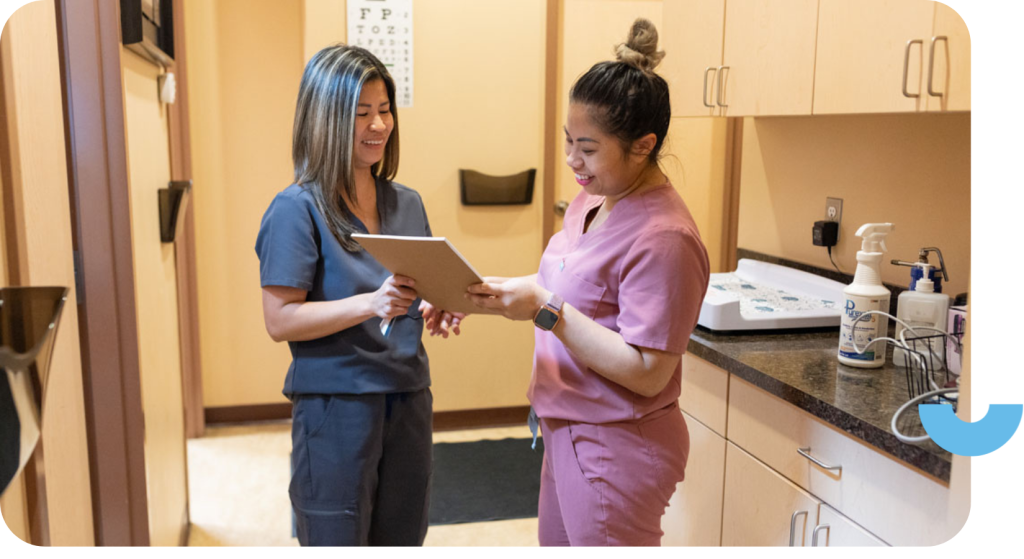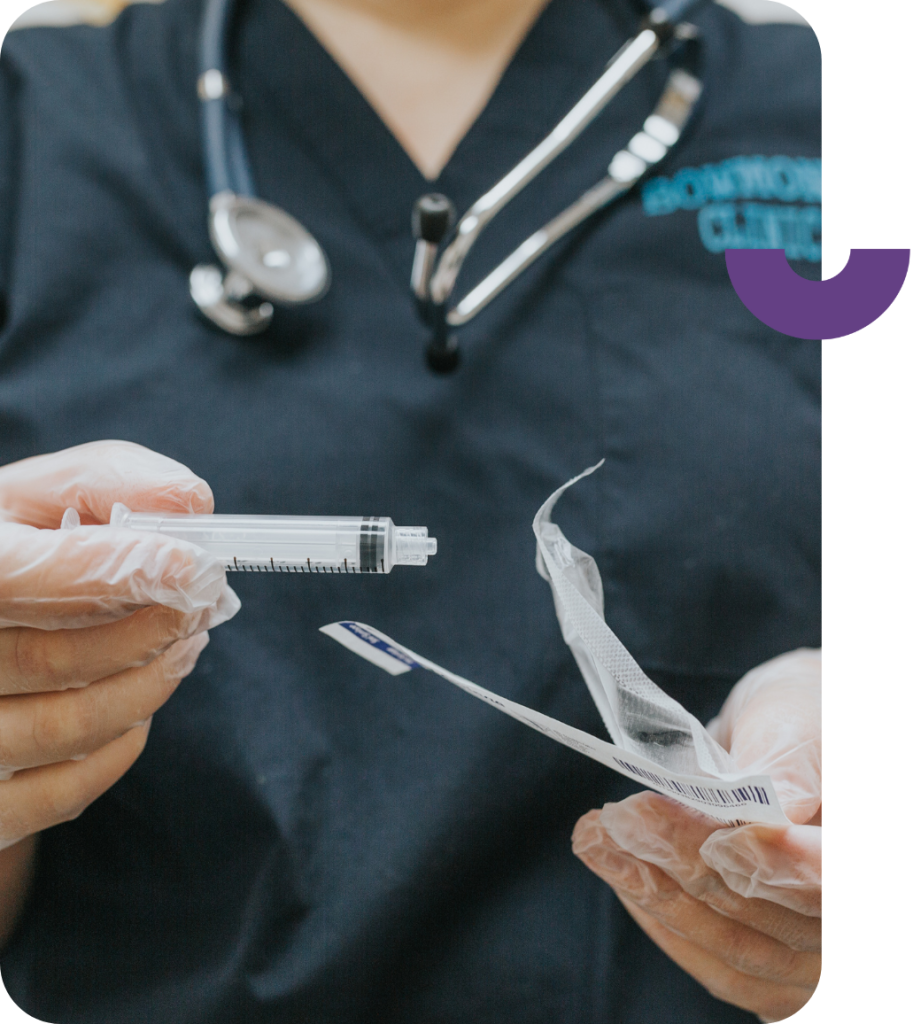CPSA relies on qualified physician assessors from across Alberta to help us review physicians who are new-to-Canada, have changed their practice or are returning from a long break.
Our assessors are highly-respected clinicians who help us ensure we’re registering competent and well-trained physicians.

Practice Readiness Assessment (PRA)
A Practice Readiness Assessment (PRA) is the required final step of an alternate path to independent practice in Alberta for international medical graduates (IMGs) who don’t have complete Canadian credentials or credentials from an approved jurisdiction.
Once an IMG registers with CPSA, they must pass this 2-part assessment of their clinical competence, chart management and professionalism to join CPSA’s temporary Provisional Register. If a Canadian medical graduate fails a national exam, they also have to participate in a portion of this assessment and pass before joining the Provisional Register.
Steps to take before you start your PRA
Below are the steps you need to take before a PRA.
Once these are complete, CPSA finds you an assessor or supervisor and arranges the assessment dates. This may take some time as we are very thorough in finding assessors and supervisors that are available, qualified and do not have conflicts of interest.
- Submit a Review of Qualifications for Independent Practice: Through your physiciansapply.ca account, you need to submit a Review of Qualifications to CPSA. This is our pre-screening process for every applicant to confirm you meet all the CPSA eligibility requirements. We’ll send you a CPSA Eligibility Letter confirming if you can move to the next step. It outlines which CPSA Register you can apply to and what assessment you need. You also need this letter for sponsorship. For more information, check out applying for independent practice.
- Apply for the TDM exam: If you are a Family Medicine physician, you need to pass the Therapeutics Decision Making exam. Family Medicine physicians who aren’t eligible for independent practice on the General Register, or who do not have Recognized Training and Certification Outside Canada through the College of Family Physicians of Canada, must write the TDM exam.
- Secure sponsorship: You need to apply for sponsorship. Sponsorship helps make sure new-to-Alberta physicians can enter the workforce while also serving communities that have the highest need for physicians. The sponsor sends us a sponsorship form. To apply for or see what jobs are available in Alberta, visit doctorjobsalberta.com.
- Submit your supporting documents: Your CPSA Registration Administrator will contact you after we receive your TDM exam results (if applicable) and sponsorship form. At this stage, you will need to answer background questions through your physiciansapply.ca account and provide us with supporting documentation. Your CPSA Registration Administrator will let you know what documentation we need.
- Start the PRA: Once we have your full application and supporting documents, we’ll send your file to the PRA program and start setting up your assessment.
Steps towards the Practice Readiness Assessment:

Timelines
The steps up to and including the PRA can take anywhere from approximately 10 months to just under 3 years, and there are factors that affect the timing of each step.
Here is a comparison of an average and extended timeline:
| Review of qualifications | Eligibility letter | Sponsorship & TDM | Registration | Assessment setup | PCA | Probationary Assessment | Total | |
| Average | 1 week | 1 week | 2 weeks | 1 week | 2 months | 3 months | 3 months | 37 weeks |
| Extended | 3 weeks | 2 weeks | 12 months | 12 months | 6 months | 3 months | 3 months | 154 weeks |
Reasons the timeline may be extended include:
- questions about the qualifications provided
- the TDM exam result, such as a need to retake the exam
- a delay in obtaining a sponsor letter of offer
- your criminal record check
- Certificates of Professional Conduct
- third-party source verification of your credentials
- your PRA start date availability
- PCA assessor and Probationary supervisor availability
- the time it takes for you to gather information from third parties
What to expect during the PRA: Part A & Part B
Part A: Preliminary Clinical Assessment (PCA)
Over 3 months, you’ll work under direct observation in the medical practice of a CPSA-approved assessor. The assessor will always be the physician in charge of the practice and will oversee everything you do. They’ll review your clinical competence, chart management and professionalism. CPSA can end the assessment at any point if there is enough evidence to determine you have not passed. Part A could be waived based on your location of medical training or specialty certification, previous experience in a Canadian setting, an appointment to a full-time academic position, or if you are a Canadian-trained applicant who has not passed the national certification exams.
Part B: Probationary Assessment
Over 3 months, a CPSA-approved supervisor will observe you in independent practice where you are the physician in charge. During this phase, you can bill Alberta Health for your medical services. The supervisor will visit you regularly to review charts and collect feedback from your patients, colleagues and staff. CPSA can end the assessment at any point if there is enough evidence to determine you have not passed.
PRA fees
Fees (taxes are included) for a PRA Assessment are paid by the sponsor and cover the cost of the assessors’ time and any expenses they incur related to the assessment.
They also include any fees we pay to the Medical Council of Canada (MCC) to be a part of the pan-Canadian PRA program (NAC-PRA). Applicants may be responsible for their own assessment fees—please review your employment and sponsorship contracts for details.
Return-to-practice assessment
If you’ve been out of practice for more than 3 years, you may have to complete a return-to-practice assessment to make sure you can start working again safely.
This assessment determines what kind of re-training or other support you might need to care for Albertans after a long absence from medicine.
CPSA will review your application and let you know if you need an assessment and additional training. We’ll arrange any required assessment and training.
Return-to practice assessment fees
Physicians are responsible for any costs associated with their return-to-practice assessments.

Change-in-scope assessment
If you are already practising medicine in Alberta and would like to add a new medical service to your practice, you may need an assessment to make sure you have the training, experience and competence to offer this service to Albertans.
Are you unsure if you may need an assessment?
CPSA will review your application and let you know if you need an assessment, which we will arrange.
Review these scenarios and actions for you to consider:
- You are registered with CPSA and have new certification from either the Royal College of Physicians & Surgeons of Canada (RCPSC) or the College of Family Physicians of Canada (CFPC).
- Please email Registration@cpsa.ab.ca to inform our office of your recent additional certification, and we will be in contact with you.
- Your current license was issued based on the credentials you presented at registration.
- If no new credentials (Royal College, College of Family Physicians of Canada or an equivalent deemed by CPSA) have been acquired, there is nothing to update on your practice permit.
- You have concerns with your billing codes.
- Please contact Alberta Health. Billing and associated rules do not fall under CPSA’s jurisdiction.
- You wish to add to or change your scope of practice.
- Please complete a Change in Scope Assessment Application Form.
Change-in-scope assessment fees
Physicians are responsible for any costs associated with their change-in-scope assessment.
Summative Assessment
Physicians on CPSA’s temporary Provisional Register have 6 years to get all their Canadian credentials and transfer to the General Register.
If required on a physician’s Registration Understanding and Acknowledgement, the Summative Assessment (SUMA) is at the physician’s cost.
The SUMA is a mandatory, 3 to 4 day pass/fail assessment of your medical knowledge, procedural skills, clinical decision-making skills, communication and professionalism to prove you qualify for registration on the General Register. Without getting the required credentials or passing the SUMA, your registration on the Provisional Register will expire. This is a high-stakes pass/fail assessment—physicians who fail can no longer practise medicine in Alberta. If we decide you need to undergo a SUMA, you will have at least 1 year’s notice of when the assessment will take place.
We encourage physicians to get all their Canadian credentials within 6 years.
Next steps—after your SUMA
- Your assessor will provide all their assessment documentation to CPSA for submission to the Summative Assessment (SUMA) Advisory Committee for review.
- The SUMA Committee will prepare a recommendation to the Assistant Registrar regarding your application for registration on the General Register.
- The final decision regarding whether or not you passed or failed the SUMA is made by the Assistant Registrar, Registration or their designate—not the assessor or the SUMA Advisory Committee. The Assistant Registrar will provide you with a letter explaining the outcome.
- If you fail the SUMA, there is an appeal process for registration decisions under Section 31 of the Health Professions Act. Your Registration on the Provisional Register will remain valid until a final decision is made.
Registration runs from January to December. Annual renewal notices are issued in mid-October and fees are due by Dec. 31 each year for renewal the following year. We ask that you complete your CPSA annual renewal if you are waiting your SUMA result.
Summative assessment fees
Registration Assessment FAQs
To see more FAQs related to Registration, click on All FAQs and filter by "Registration"
All FAQsAre there any exemptions from the Summative Assessment process, other than obtaining my Canadian certification and LMCC?
Physicians on the Provisional Register who were exempt from the Preliminary Clinical Assessment (PCA) part of their initial Practice Readiness Assessment are also exempt from the Summative Assessment (e.g. academic appointments). In these cases, CPSA will review their file near the expiry of their provisional registration to confirm they still meet all the requirements to transfer to our General Register, including being in satisfactory practice.
How do I find out when my Provisional Registration expires?
Details on your Provisional Registration can be found in your Registration Understanding Agreement. If you don’t have your copy available, contact physician.inquires@cpsa.ab.ca.
What could delay or prevent my transfer to the General Register?
Each physician’s situation is assessed individually. We consider a number of factors, including any open CPSA complaints or interventions, non-compliance with the Continuous Professional Development (CPD) rules or practice restrictions or conditions, un-verified credentials, not completing at least 5 years of satisfactory practice in Alberta while on the Provisional Register, lack of evidence of good character or a history of serious professional conduct issues like professional misconduct, imposed practice restrictions or a failure to remediate quality-of-care issues with the Continuing Competence Program.
When will CPSA review my file to transfer me from the Provisional Register to the General Register?
CPSA reviews your status every time you tell us about new certifications, or when you reach your five or six-year anniversary on the Provisional Register. We may ask you for information about your certifications at that time to help us determine if you are eligible for the General Register.
Registration assessment policies
Our registration assessment policies outline the processes for Practice Readiness Assessments, transferring from our Provisional Register to our General Register, and Summative Assessments.
Physician approvals
CPSA is undertaking a review of the legislative authority by which we provide approvals for non-accredited services.
In the interim, we are not taking applications for these approvals.
Certified Examinerprocess under review |
Injury Management Consultantprocess under review |
Questions or feedback? We'd love to hear from you.
Local: 780-969-4924
Toll-free: 1-800-561-3899 ext. 4924 (in Canada)






















